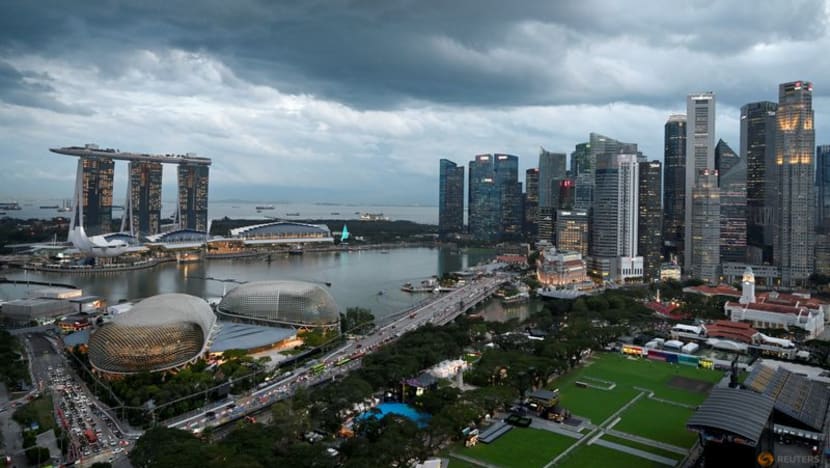Business
Singapore Ranks Fourth for Expat Costs, 28th for Locals in Study

A recent study conducted by the Lee Kuan Yew School of Public Policy has revealed that Singapore is the fourth most expensive city in the world for expatriates, while it ranks 28th for local residents. This analysis covered 45 cities across Asia, Australasia, Europe, and North America, highlighting significant disparities in living costs based on residency status.
The study’s findings indicate that expatriate living expenses are largely influenced by global inflation dynamics and fluctuations in exchange rates. In contrast, local living costs are less susceptible to these international factors. Housing prices, transportation expenses, and international school fees were identified as the primary cost drivers affecting expatriates.
In 2025, Singapore placed fourth among the 45 cities surveyed, trailing only behind New York, Zurich, and Los Angeles. For local residents, the city was substantially less expensive, ranking 28th. Interestingly, while many of the highest-ranked cities for expatriates are located in North America and Western Europe, Singapore and Hong Kong stand out as exceptions.
Among the cities evaluated, Hong Kong ranked as the 10th most expensive for expatriates and 31st for locals. Within Asia, Singapore emerged as the most expensive city for both expatriates and locals, with Hong Kong following in second place. The study tracked these rankings from 2021 to 2025, revealing that Singapore’s position for expatriates has fluctuated over the years: it was sixth in 2021, fifth from 2022 to 2024, and now fourth. For locals, the city’s ranking has improved slightly from 33rd in 2021 to its current 28th position.
Factors influencing the high living costs in cities like Singapore, Zurich, and Hong Kong extend beyond local economic conditions. The top ten cities also recorded the highest housing prices globally. In Singapore, housing costs for expatriates were the sixth highest among the surveyed cities, while for locals, it ranked 23rd. This disparity is largely attributed to expatriates’ reliance on the private rental and condominium market, whereas locals can access subsidized or public housing.
Transportation and education costs have also been highlighted as the highest globally for expatriates in Singapore. The study noted that car ownership is especially costly due to the Certificate of Entitlement system, which regulates vehicle ownership in the city-state.
In contrast, the study identified that the least expensive cities for expatriates are primarily located in Southeast Asia. Researchers concluded that cities in developed regions are becoming increasingly unaffordable, with living costs consistently on the rise.
This study serves as a critical resource for understanding the economic landscape and living conditions for expatriates and locals in Singapore, illustrating the broader implications of global economic trends on urban living expenses.
-

 Business5 months ago
Business5 months agoKenvue Dismisses CEO Thibaut Mongon as Strategic Review Advances
-

 Lifestyle4 months ago
Lifestyle4 months agoHumanism Camp Engages 250 Youths in Summer Fest 2025
-

 Sports4 months ago
Sports4 months agoDe Minaur Triumphs at Washington Open After Thrilling Comeback
-

 Sports5 months ago
Sports5 months agoTupou and Daugunu Join First Nations Squad for Lions Clash
-

 Top Stories5 months ago
Top Stories5 months agoColombian Senator Miguel Uribe Shows Signs of Recovery After Attack
-

 World5 months ago
World5 months agoASEAN Gears Up for Historic Joint Meeting of Foreign and Economic Ministers
-

 Health4 months ago
Health4 months agoNew Study Challenges Assumptions About Aging and Inflammation
-

 Business5 months ago
Business5 months agoOil Prices Surge Following New EU Sanctions on Russia
-

 Entertainment4 months ago
Entertainment4 months agoDetaşe-Sabah Violin Ensemble Captivates at Gabala Music Festival
-

 Entertainment4 months ago
Entertainment4 months agoBaku Metro Extends Hours for Justin Timberlake Concert
-

 Top Stories5 months ago
Top Stories5 months agoRethinking Singapore’s F&B Regulations Amid Business Closures
-

 Business5 months ago
Business5 months agoU.S. House Approves Stablecoin Bill, Sends to Trump for Signature









